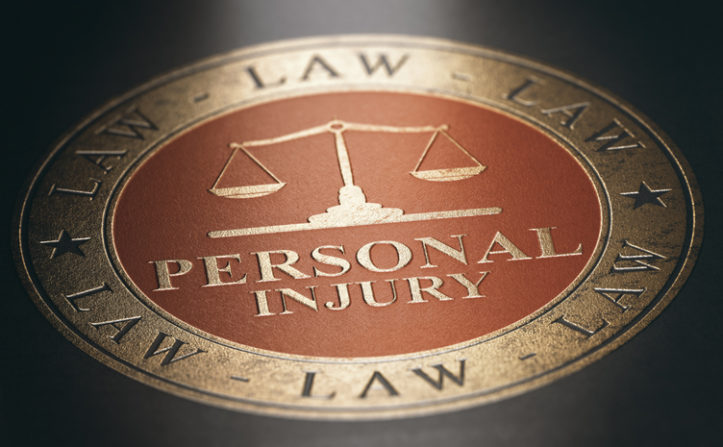
Champions of Justice: The Unseen Value of Personal Injury Lawyers in Restoring Lives
Personal injury laws in Texas are designed to protect individuals who have been physically or psychologically injured due to the negligence or wrongful actions of another person, company, government agency, or any other entity. Here are some key aspects of personal injury laws in Texas:
1. Statute of Limitations: In Texas, there is a specific time limit within which a personal injury lawsuit must be filed. For most personal injury cases, this time limit is two years from the date of the injury. If you fail to file within this period, you will likely lose your right to sue.
2. Comparative Negligence: Texas follows a modified comparative negligence rule. This means that if you are found to be partially at fault for your own injuries, your compensation can be reduced by the percentage of fault assigned to you. If you are found to be more than 50% at fault, you cannot recover any compensation from the other at-fault parties.
3. Damages: In Texas, you can seek compensation for various damages in a personal injury case. These can include medical expenses, lost wages, pain and suffering, emotional distress, and in some cases, punitive damages. Punitive damages are awarded to punish the defendant for particularly reckless or malicious behavior and to deter similar conduct in the future.
4. No-Fault vs. Fault Insurance: Texas is a “fault” state when it comes to auto accidents, meaning that the person responsible for the accident is liable for any resulting harm. This contrasts with “no-fault” states, where each party’s insurance pays for their damages regardless of who is at fault. In Texas, you have the option to file a claim with the at-fault driver’s insurance, file a claim with your own insurance (if you have coverage for the accident), or file a lawsuit to seek damages.
5. Product Liability: If your injury was caused by a defective product, you might have a product liability claim. Texas law allows you to seek compensation from the manufacturer, distributor, or seller of a product that is found to be defective and causes injury.
6. Wrongful Death: In the event that a personal injury results in death, the surviving family members or the estate of the deceased may file a wrongful death lawsuit. These claims can seek compensation for loss of companionship, financial support, and funeral and burial expenses, among others.
7. Limitation on Damages: Texas has implemented caps on certain types of damages in some cases. For example, in medical malpractice cases, there are limits on non-economic damages (like pain and suffering).
It’s important to consult with a personal injury attorney to understand how these laws apply to your specific situation, as personal injury law can be complex and varies depending on the details of each case. An attorney can help navigate the legal system, negotiate with insurance companies, and work to get the compensation you deserve.
Personal injury lawyers serve as indispensable advocates for individuals who have suffered due to the negligence of others. These legal professionals specialize in tort law, encompassing civil litigation for injuries or wrongs resulting from actions or omissions by another party. Their expertise spans various scenarios, including car accidents, workplace injuries, defective products, and medical malpractice, emphasizing the importance of securing compensation for their clients’ physical, emotional, and financial burdens.
One of the core values of personal injury lawyers is their commitment to justice. They ensure that victims are not only heard but also compensated for their losses. This can include medical expenses, lost wages, pain and suffering, and rehabilitation costs. Their role is crucial in leveling the playing field against insurance companies and large corporations, entities known for minimizing claims to protect their interests.
Moreover, personal injury lawyers offer a contingency fee basis, meaning they only get paid if they win the case. This approach allows individuals who might not afford legal representation upfront to seek justice and compensation. The lawyers’ incentive to secure the best possible outcome for their clients aligns their interests with those they represent, fostering a partnership rooted in trust and mutual benefit.
Beyond financial compensation, personal injury lawyers play a significant role in advocating for safety improvements. By holding negligent parties accountable, they contribute to preventing future incidents, promoting safer practices in industries and public spaces. This aspect of their work not only benefits individual clients but also the broader community, underscoring the societal value of their profession.
The negotiation skills of personal injury lawyers are pivotal. They adeptly navigate the complexities of legal proceedings, insurance policies, and settlement negotiations. Their expertise ensures that settlements are fair and reflective of the full extent of the clients’ injuries and losses. For many victims, navigating these negotiations without professional assistance can be daunting and often results in inadequate compensation.
Litigation is another area where personal injury lawyers excel. While many cases settle out of court, some proceed to trial. In such instances, these lawyers are prepared to present evidence, argue cases before judges and juries, and advocate zealously on their clients’ behalf. Their ability to litigate effectively ensures that clients have the best chance of receiving a favorable verdict when negotiations fail.
Furthermore, personal injury lawyers often assist in the recovery process. By securing compensation, they enable access to necessary medical treatments and rehabilitation services, facilitating a path to recovery. Their work often extends beyond the courtroom, including interacting with medical professionals and ensuring that clients receive the care they need.
In summary, the value of a Katy Personal Injury Lawyer transcends the mere pursuit of compensation. They are crucial allies in the fight for justice, champions of safety improvements, skilled negotiators, and litigators, and supportive guides through the recovery process. Their dedication to their clients’ well-being and rights is a testament to the critical role they play in the legal system, providing a voice to those who might otherwise be silenced by the daunting power of insurance companies and negligent parties.


